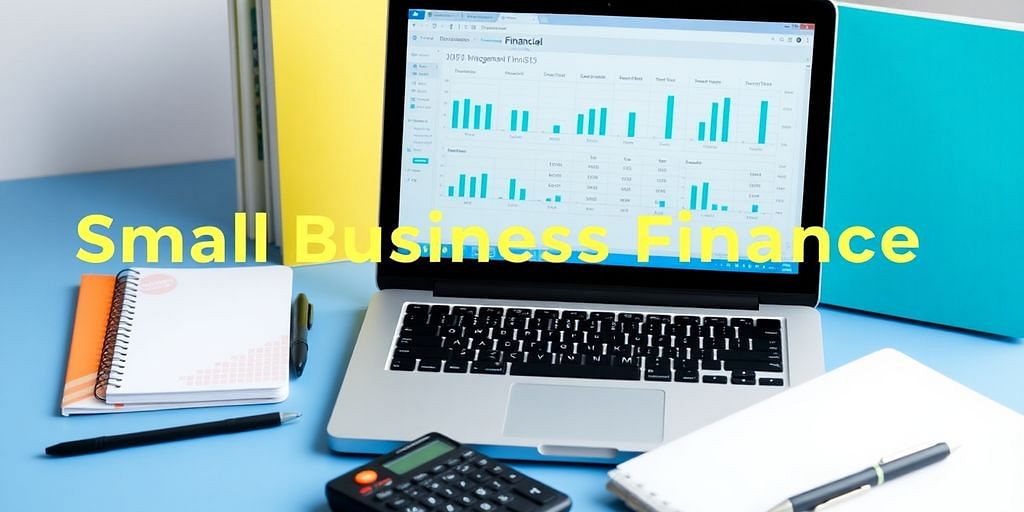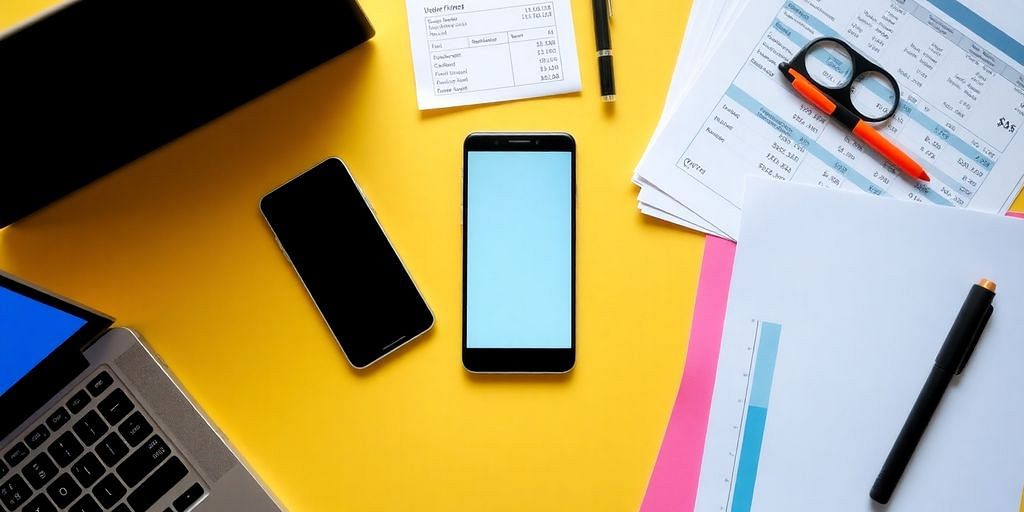
The Best Way to Keep Track of Small Business Finances in 2025: Tips and Tools for Success
Back To BlogSet A Budget And Review It Regularly
Budgeting is like giving your business a financial GPS. It tells you where you are, where you want to go, and how to get there. It's not just about restricting spending; it's about making sure your money works smart for you. We've found that businesses that budget regularly are way more likely to hit their financial goals. Let's get into the nitty-gritty.
Understand Your Monthly Expenses
First things first, you gotta know where your money is going. This means tracking everything. Rent, utilities, salaries, marketing, that subscription you forgot to cancel – the whole shebang. Use accounting software, spreadsheets, or even just a notebook. The point is to get a clear picture. Once you know your operating costs, you can start to see patterns and identify areas where you might be overspending. Don't just guess; get the data.
Identify Areas To Cut Costs
Okay, so you know where your money is going. Now, where can you trim the fat? Are there subscriptions you don't use? Can you negotiate better deals with suppliers? Maybe you can cut back on marketing spend that isn't bringing in results. It's not about being cheap; it's about being efficient. Look for those easy wins first – the low-hanging fruit that can make a quick difference.
Adjust For Seasonal Changes
Businesses often have ups and downs depending on the time of year. If you're in retail, the holidays are probably huge. If you're in landscaping, summer is your jam. Your budget needs to reflect these changes. Plan for the slow months by saving during the busy ones. It's all about anticipating the ebbs and flows of your business and creating a budget that can handle them. A flexible budget is a happy budget.
Think of your budget as a living document. It's not set in stone. Review it monthly, or even weekly, to make sure it still aligns with your business goals. As your business grows and changes, your budget should too.
Stay Organized With Digital Tools

Okay, let's be real, nobody loves paperwork. In 2025, there's absolutely no excuse for drowning in receipts and spreadsheets. We need to talk about using digital tools to keep our small business finances in check. It's not just about being modern; it's about saving time, reducing errors, and actually understanding where our money is going.
Use Accounting Software
Accounting software is a game-changer. Seriously. We can ditch the manual entry and let the software automate a lot of the grunt work. Think about it: automatic bank feeds, invoice generation, expense tracking, and financial reports at our fingertips. It's like having a virtual bookkeeper, but way more affordable. There are tons of options out there, so we should find one that fits our specific needs and budget. Some even offer specialized features for different industries. It's worth the investment to automate invoice generation and get a handle on our finances.
Leverage Cloud Storage
Cloud storage is another must-have. No more worrying about losing important documents if our computer crashes. We can store everything securely in the cloud and access it from anywhere. This is especially helpful if we have a team or work with remote contractors. Plus, it makes sharing documents with our accountant a breeze. Here's a few things we can do with cloud storage:
- Store receipts and invoices digitally
- Share financial reports with our team
- Access our data from anywhere
Automate Your Invoicing
Invoicing can be a huge time suck, especially if we're doing it manually. Automating our invoicing not only saves time but also helps us get paid faster. We can set up recurring invoices for repeat clients, send automatic payment reminders, and even accept online payments. This makes it easier for our clients to pay us, which means more money in our pockets, faster. Plus, most accounting software integrates with invoicing tools, so we can keep everything in one place. It's a win-win. Effective record keeping is crucial, and automation is the key.
Separate Personal And Business Finances
It's easy to let things get mixed up when you're running a small business, especially in the early days. But trust us, keeping your personal and business finances separate is a huge deal. It might seem like extra work now, but it will save you a ton of headaches later. Think of it as building a strong wall between your personal life and your business life.
Open A Dedicated Business Account
First things first, get a separate bank account just for your business. This isn't just a good idea; for some business structures, like LLCs, it's actually a legal requirement. Even if it's not required for you, do it anyway! It makes tracking income and expenses way easier. Plus, it helps protect your personal assets if your business ever runs into trouble. To open a business bank account, you'll typically need your business registration documents and maybe a few other things, so check with the bank beforehand.
Track Business Expenses Accurately
Speaking of tracking, you need to be meticulous about recording every single business expense. No more using your personal card for office supplies and forgetting to reimburse yourself! Use your business account or a dedicated business credit card for all business-related purchases. Keep all receipts, and make sure to categorize them properly. This will make tax time so much easier, and it will give you a clear picture of where your money is going.
Here are some expense categories to keep an eye on:
- Office supplies
- Marketing and advertising
- Travel expenses
- Software and subscriptions
Simplify Your Tax Preparation
Tax time can be a nightmare for small business owners, but it doesn't have to be. When your finances are properly separated, preparing your taxes becomes much simpler. You'll have a clear record of all your income and expenses, making it easier to calculate your taxable income and claim all the deductions you're entitled to. Plus, it reduces the risk of errors and potential audits. Consider using accounting software or hiring a professional to help you with tax preparation – it's an investment that can pay off big time.
Separating your personal and business finances isn't just about making things easier; it's about protecting yourself and your business. It's a sign that you're serious about your business and that you're committed to its long-term success.
Invest In Financial Education

We all know running a small business is a constant learning curve. Things change fast, and what worked last year might not cut it anymore. That's why investing in our financial knowledge is super important. It's not just about knowing the basics; it's about staying ahead of the game.
Take Online Courses
There are tons of online courses out there that can help us sharpen our financial skills. From understanding financial accounting to mastering cash flow, these courses can give us a solid foundation. Plus, we can learn at our own pace, which is a huge bonus when we're juggling a million other things. Many platforms even offer specialized courses tailored to specific industries, so we can really drill down into what matters most for our business.
Attend Workshops
Workshops are a great way to get hands-on experience and network with other business owners. We can learn from experts, ask questions, and get personalized advice. Plus, the energy of being in a room full of people who are just as passionate about business as we are can be really inspiring. Look for workshops offered by local business organizations or community colleges. They often cover topics like effective financial bookkeeping and tax planning, which are super useful.
Read Financial Books
Don't underestimate the power of a good book! There are tons of books out there that can help us improve our financial literacy. Whether it's learning about investing, managing debt, or understanding financial statements, reading can be a really effective way to expand our knowledge. We should aim to read at least one financial book per quarter to stay informed and up-to-date.
Financial education isn't a one-time thing; it's an ongoing process. The more we learn, the better equipped we'll be to make smart financial decisions for our business. It's an investment that will pay off in the long run.
Learning about money is super important! By investing in your financial education, you can make smarter choices about saving, spending, and investing. Don’t wait to start your journey to financial success. Visit our website today to discover helpful resources and tips that can guide you!
Frequently Asked Questions
What is the best way to keep track of my small business finances?
The best way is to use accounting software to track your income and expenses. You should also set a budget, keep personal and business finances separate, and regularly review your financial situation.
How often should I review my budget?
You should review your budget at least once a month. This will help you see where your money is going and make adjustments as needed.
Why is it important to separate personal and business finances?
Keeping personal and business finances separate helps you manage your money better. It makes tracking expenses easier and simplifies tax preparation.
